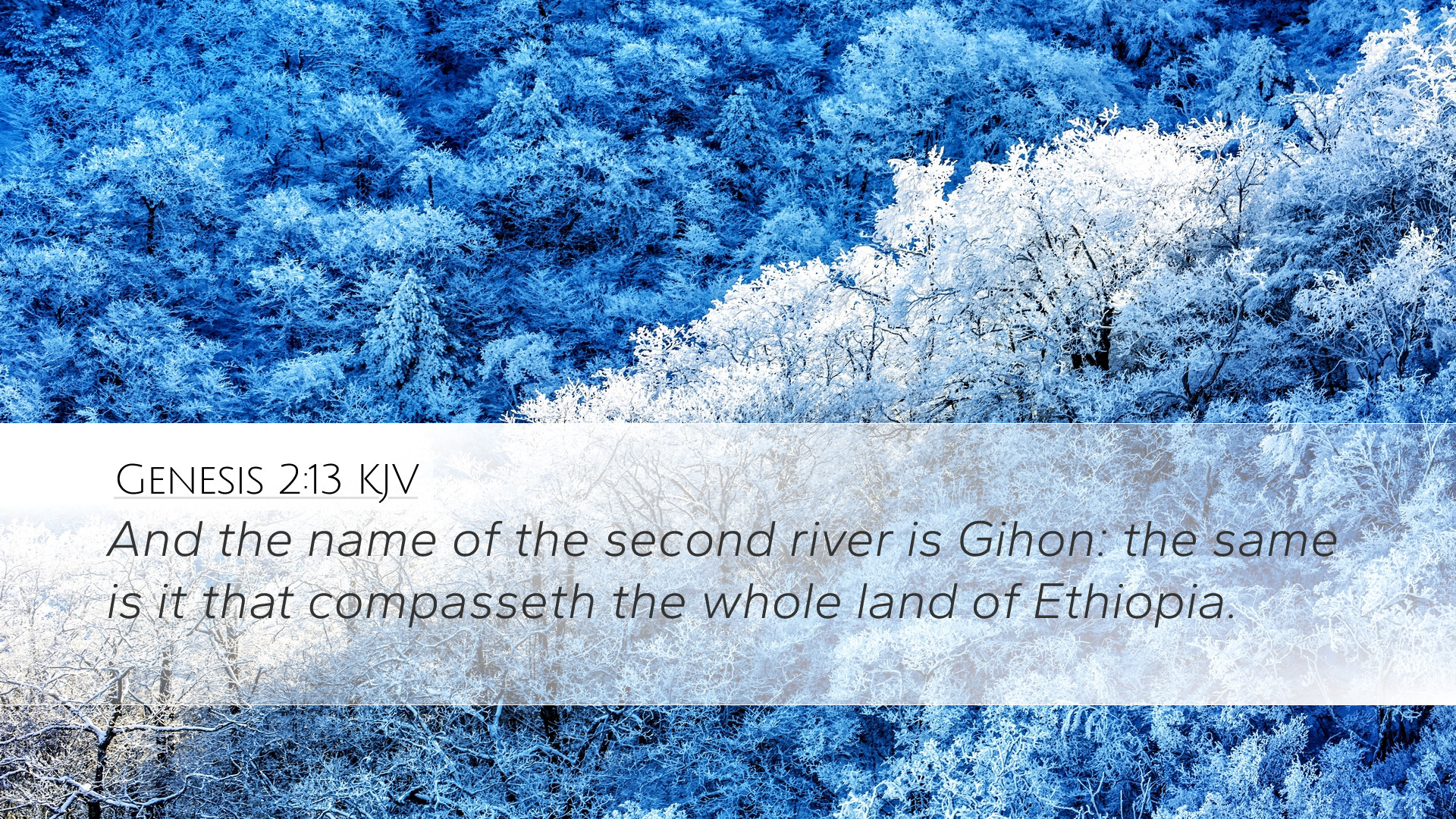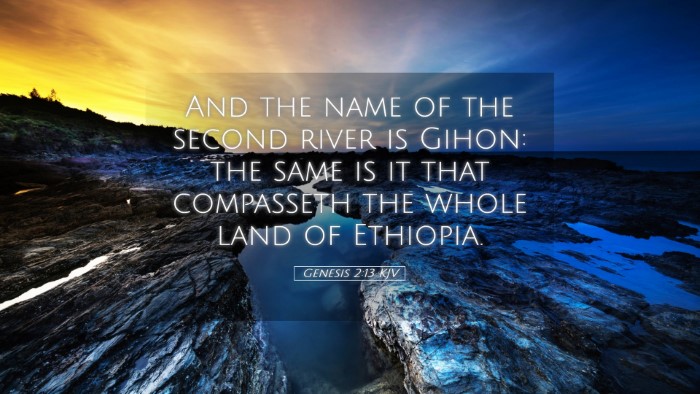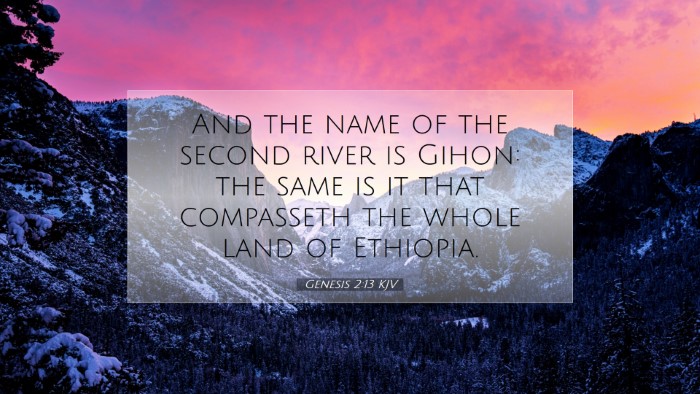Commentary on Genesis 2:13
Genesis 2:13 states: "And the name of the second river is Gihon: the same is it that compasseth the whole land of Ethiopia." This verse, nestled within the creation narrative, not only names the second river but also provides geographical context significant for deeper theological reflections. Various biblical commentators offer profound insights into the spiritual and historical implications of this river and its surroundings.
Geographical Significance
Matthew Henry points out that the naming of the Gihon river is intentional, given its association with the land of Cush, traditionally identified with Ethiopia. This geographical reference indicates the expansiveness of God's Creation and His sovereignty over all nations and territories. It demonstrates that the blessings of Eden were not limited; rather, they flowed into areas beyond Israel, emphasizing an inclusive narrative of creation.
Albert Barnes elaborates on the identification of rivers in Genesis, suggesting that their names often carry a deeper symbolism. The Gihon, which may mean "to break forth," symbolically connects to the idea of life-giving sustenance flowing out to nourishing lands. This relates to biblical themes of God providing abundance and flowing generosity, a motif prevalent throughout Scripture.
Symbolic Interpretations
Adam Clarke delves into the symbolism of water in Scripture. He correlates rivers with divine blessing and spiritual life. The river Gihon thus represents the outpouring of God’s grace, nourishing the peoples of Ethiopia and serving as a metaphor for evangelization and the expansion of God's kingdom. This reflects God's desire for relationship with all nations and His plan for redemption that reaches beyond Israel.
Cultural Context
The mention of Ethiopia (Cush) not only sets geographical boundaries but also serves to indicate God's intricate design for human societies. Matthew Henry notes that Cush was known for its wealth and powerful populations in ancient times. This historical backdrop enriches our understanding of God’s work in diverse cultures, celebrating differences and highlighting the universality of His creation.
Implications for Theology
-
Divine Sovereignty: The identification of the Gihon river showcases God's sovereignty over creation chaos, transforming the landscape into a divine context where life flourishes.
-
Inclusivity in God's Plan: The reference to Ethiopia indicates that God's plan transcends ethnic and geographical barriers, foreshadowing the mission of the gospel intended for all nations.
-
Symbol of Spiritual Life: The river signifies more than physical nourishment; it symbolizes the spiritual sustenance that God provides through His Word and the living water of Jesus Christ.
Pastoral Applications
For pastors and leaders, Genesis 2:13 offers rich pastoral applications:
-
Encouragement for Mission: This verse encourages congregations to expand their missionary efforts globally, reflecting on God’s desire for all to come into a relationship with Him.
-
Celebrating Diversity: It invites communities to celebrate cultural diversity, recognizing that God’s creation includes every nation and ethnic group, and each bears His image.
-
Spiritual Nourishment: Pastors might emphasize the importance of seeking spiritual nourishment through God's Word, paralleling the Gihon river's life-giving attributes to the sustenance believers find in God.
Conclusion
In summary, Genesis 2:13 acts as a bridge between creation and the unfolding narrative of God's relationship with humanity. The commentary from Matthew Henry, Albert Barnes, and Adam Clarke provides both academic rigor and spiritual depth. Understanding the significance of the Gihon river reaffirms God's sovereign control, invites believers to live in accordance with His universal mission, and encourages the continual pursuit of spiritual richness in the life of the church. As scholars, students, and pastors reflect upon this verse, may they be inspired to see the greater narrative of God’s creation and His loving outreach to every corner of the world.


